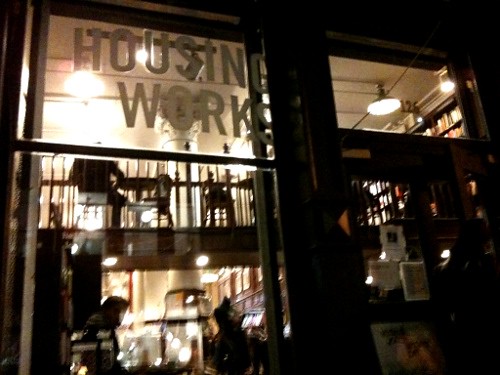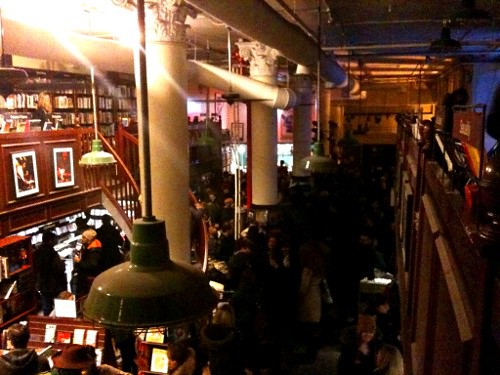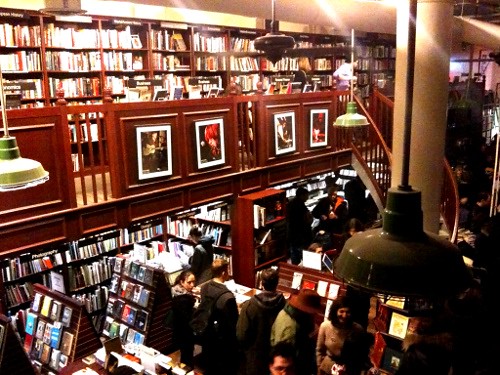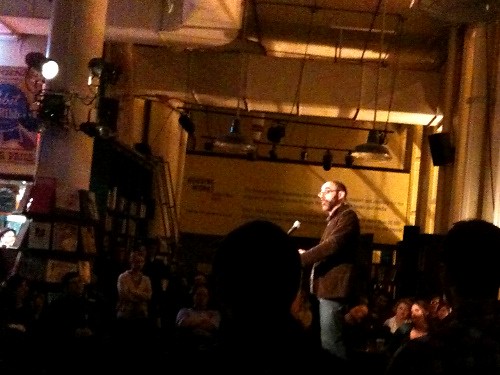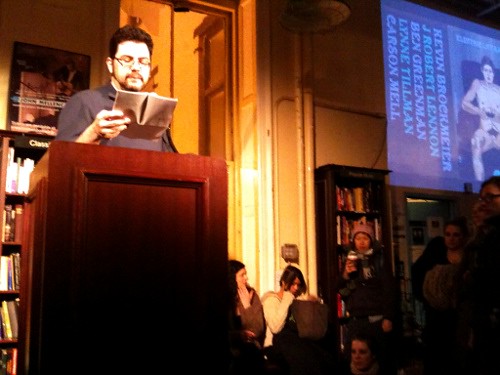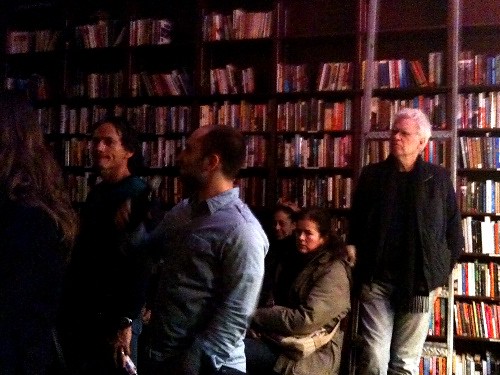
Right, it's Oscar time again, and as you may know I usually try to watch as many Oscar-nominated movies as I can in the days before the ceremonies. So these reviews are speedy and harsh and above all biased, since there's a certain expectation that comes from being an Oscar nom. Many of these movies might be fine on their own, I'm only interested in how they stand as Oscar movies.
It's only a few hours to the ceremonies and there are still three of the ten Best Picture nods that I haven't seen,
127 Hours,
The Kids are All Right and
Winter's Bone.
Toy Story 3 I have no desire to write about, since you can tell pretty accurately what it is from the title and the Pixar logo (it was a tad darker than most wholesome movies within limits, but I've been all bawled out since Up). Inception I saw when it came out and have written about it a bit
in other places. It's been over-examined to death already so I'll sum up my thoughts with this: thpppbbbt.
Inception was, sadly, the movie with the most substance of these noms, though it drowned that substance in action movie tropes and obviousness. So, here are the rest:
 Black Swan
Black SwanThere's one movie Darren Aronofsky has been trying to get right for the last two decades, in
Pi, in
The Wrestler, even in
Requiem For A Dream to a lesser extent, a movie about how an person (mathematician, pro-wrestler, whatever) manages to, just once, do something right. In typical cinematic pessimism the way to get to that rightness is through movie-lengths bouts of self-destruction, paranoia, egotism, evisceration and various power tools. But what makes these movies different from your typical Hollywood tortured-artist story (and Hollywood hates artists more than anything except maybe single females) is that in the end the Aronofsky folks do get things right in the end, somehow. There's a mad triumph at the end, and you say, aha, at least it's
possible (even in Requiem, for one character). So it’s e a big thumbs up to hard work and perseverance, and a big fuck you to life in general, which, if not particularly healthy, is at least fun to watch.
Black Swan manages to do this well, and at the same time fails in the way his other movies also fail. There is a lack of subtlety here (obvious just from the casting of Mila Kunis alone). Natalie Portman's overworked ingénue is hardly likeable (and also, at pushing 30, a bit older than we're supposed to believe she is). It's still a solid performance, she's wrung out like a wet towel in varying degrees of wrungingness for two hours, and it's impressive that she could maintain that intensity without getting the giggles.
But above all there is a tendency toward the overdramatic. It's this more than anything else that has caused Aronofsky to shoot himself in the foot over and over again (let's not even mention
The Fountain). I had hoped that The Wrestler, which was low-key in all the right ways, marked a turned toward the more honest and understated. But with Black Swan we're back to all the old bad habits. If the movie had slightly less drama it could have been a fable about the trials that any performer has to go through to get that great performance. But instead we're left with a cinematic ending, which, after an exhaustingly satisfying third act, smacks more of spectacle than truth. The Wrestler had more heart, even if there wasn't much else in it, and because of that I'd rather have watched that movie twice than one this once.
 The Fighter
The FighterThe first, and main, failing of this movie is the title. Boxing movies have a long history of singular men and singular titles, beefy man-children punching away at fame until it gets old or they do,
Rocky,
Raging Bull,
Ali,
The Great White Hope,
The Hurricane,
Million Dollar Baby – note how all these titles are singular, with just one dude (or ladydude) at the forefront, everything else being about or against them. So with The Fighter, we expect, mainly, a fighter. One. What we get is two, the washed-up crackhead Dickey Eklund and his sullen, boring half-brother Mickey Ward. Which one is this movie about?
The writers tend to think it's Mickey, since he gets (sadly) the most screen time. But all the buzz is about Christian Bale's nod as best supporting actor, not about Mark Wahlberg's as producer. And for good reason, Wahlberg's Mickey is about as interesting as a can of Boston baked beans with boxing gloves on. One suspects that if Wahlberg weren't also in that producer's chair, a savvy director would have seen the obvious and either a) fired Wahlberg and got someone more lively in the role, or b) restructured the movie around Dickey. Because it's almost all about Dickey anyway, he has charisma, humor, an effortless manic energy. Because of that Mickey has to be played relatively straight, so the brothers can bounce off each other. But Wahlberg loses us in the process. His Mickey is a big child, constantly pushed around by his mother and sisters and even his girlfriend (a feisty Amy Adams, who will probably win best supporting actress for her fake Boston accent even though True Grit's Hailee Steinfeild did more work). Even when Mickey does stand up for himself it's more like a child stamping his foot in petulance than a grown man taking rightful charge of his destiny.
Thoug if the movie had been rewritten with Dickey as lead, Colin Firth would have a tough time getting his Oscar this year.
 The King's Speech
The King's SpeechThe trouble with trying to write a light-hearted buddy movie about a historical person in the midst of a historical crisis, is that when faced with a historical person in a historical crisis the last thing people want is a light-hearted buddy movie. The biopic lights start flashing, we see Churchill and Hitler go by and suddenly we are expecting one of those Serious Movies about Serious Things. You know, the sort where the movie poster has the lead, dramatically lit, looking off into the middle-distance with a half-weary, half-resigned look. The sort of movie that usually makes it to the Oscars every year (though not this year). That is the movie The King's Speech exasperatingly dangles in front of us, and I know I don't need to see another serious movie about Britain in World War II, and yet, and yet…
So
The King's Speech is at best half a movie, taking the bromance that usually occurs on the sideline of your usual biopic and putting it center stage, with all the predictable tiffs and spats and reconciliations of the bromantic drama. The fact that Firth is so good in the role, that Helena Bonham Carter is so regal, that the sets are so lush and comfy and make you really want some tea, makes it that much sadder that these things have ended up in a plotline more suited for Will Ferrell and the cast of SNL than the best of Britain.
The rest of the cast drops off in quality, and I shan't say anything about Geoffery Rush but to ask why he is playing an Australian while Guy Pierce is the one with an accent. And Churchill, who let Scabbers into parliament?
The half a movie that we get do in The King's Speech is still good, and quite watchable, but still disappointingly incomplete.
 The Social Network
The Social NetworkHas anyone ever noticed that Aaron Sorkin doesn't make good movies anymore? Yes, a brilliant screenwriter, yes The West Wing was the best thing on television since Alf, yes
A Few Good Men and
American President. But
The Social Network and
Charlie Wilson's War were both structured like tv pilots: bring in some good characters, have them verbally abuse each other, end abruptly. Of course Fincher did for The Social Network what was wholly lacking in Charlie Wilson, that of breathing life and realism into the characters and set pieces. Everything is lush and dark and velvety, clearly in the 90s Harvard was only lit by streetlights and laptop screens.
Mark Zuckerberg is played with that confidence-bordering-on-arrogance you tend to see in people raised by computers (try to deny it). It's hard to say anything more about the movie, since it comes and goes with such nonchalance. Is it a movie about a kid who can't connect to other people who nevertheless designs a site which is connecting the world? Not really, Zuckerberg isn't played as particularly lonely. His loneliness is more a function of wounded pride, he expects to not be alone and is disappointed when he is. So what is this movie about?
There is a certain glee to see programmers being treated with the same rapt enthusiasm given to rock stars or people who throw or kick round things at or into round or square net-things, which sustained my interest for the first half. But I think the whole concept might have worked much better as a miniseries than a movie, because while Sorkin is great at making dialogue go by with breezy ease, the movie felt full of air. The main conceit, playing the action as being retold through two simultaneous lawsuits against Zuckerberg, loses traction in the second half. Zuckerberg so eloquently dismisses these lawsuits as unimportant (settling out of court), and in the end, we have to agree. There's not enough matter for a full trial, and not enough substance for a full movie.
 True Grit
True GritThe main question left by this movie is what, precisely, did the Coen brothers see in the material here. Because there's not much in it that seems very Coen, the plot is a basic revisionist western, which might have carried weight in the late 60s (when the previous version was made) but seems a bit uninteresting now. The only things of heft are the characters, right down to Josh Brolin, who can breathe life into the smallest role. Jeff Bridges is heavy, old, cantankerous, and above all rambly, which is refreshing. There's some tacit rule in Hollywood that heroes and anti-heroes alike all have to be laconic, the only people allowed to babble are mothers-in-law and foreigners. But really it was Hailee Steeinfield's sassy and tallish 14 y/o that sustained the movie.
But besides some gorgeous landscape and some minor characters there just isn't much here. There's no Coen weirdness, what we get instead is some irony and wry humor, as if the characters are equally disappointed to be in an uninteresting movie. While this may seem harsh, just remember how good No Country For Old Men was.










